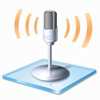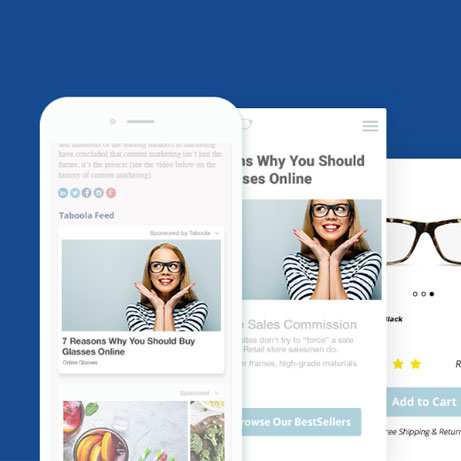How to Start a Podcast

By Alex Genadinik, Problemio
Podcasting is one of the most underrated gems of the Internet, and in this article I will explain precisely why you should be listening to podcasts, and how you can set up your own podcast as a means to promote your business. In this article I will give a real-life case study of my own podcast that I had set up and launched just weeks earlier, and walk you through some of the decisions you will have to make as you start your own podcast.
First, let's explore why podcasts are the hidden gem of the Internet. Number one, there are very few podcasters compared to the number of bloggers or YouTubers. That means there is less competition for you as a potential podcaster. But also, because the podcasting community is small, it is also tight-knit. Most podcasters are small business owners and entrepreneurs just like you. And in my experience, they are more than willing to lend a hand to a newbie.
Also, the shows are honest and earnest in nature, with most of the shows aimed at educating or entertaining for the great price of absolutely free. There is also one practical advantage of listening to podcasts. You can listen to them while you are on the go. They don't drain the battery of your mobile device like YouTube might if you try to watch it on your mobile device.
Now, as a business owner, let's focus on why you should have your own podcast. Podcasting is one of the best online options to reach your target customers at scale, and have an opportunity to make a personal connection with them. On the Web, the options to forge a personal relationship with your potential customers is to either maintain a YouTube channel, or your own podcast. I do both. If you have to choose just one of those options, the less crowded space is podcasting which will make it easier for you to get exposure. But YouTube is an ecosystem that is orders of magnitude bigger. So the total potential is far greater. But don't worry, you may not be forced to choose between them. I'll give you a little tip for how to maintain both. What I do is take the audio from my YouTube videos, and take the mp3 file from the videos. Then I turn the mp3 file into podcast episodes. That results in only a few minutes of extra work per day, and voila, I have lots of podcast content. If you are curious, you are welcome to learn more about my business podcast and how I use it to promote my business.
DECIDING ON THE FORMAT OF YOUR SHOW
The first tactical decisions you will need to make have to do with the topic and format of your podcast. Since you are presumably starting a podcast to promote your business, chances are that the decision of the topic of your podcast is a natural one. It should target the same audience as your business does, so that your podcast listeners would be more likely to become customers of your main business.
The format of your podcast is a little bit more difficult to decide on. Podcasts can range from 10 minutes to two hours in duration, and can be either interview-style, monologue, or either, depending on the topic of the episode. Most podcasts fall into the 30-60 minute range. And having guests adds a significant amount of work on your part. You have to find great potential guests, convince them to be on your new show, which doesn't have a big audience, schedule a time for them and make sure they don't flake. Most importantly, guests are very hit or miss in terms of the quality and insight that they bring to your show. If you choose a monolog format, your listeners will know what to expect, and you will need to spend much less time preparing for each show. But make sure you can discuss enough topics in sufficient depth to cover multiple 30-60 minute episodes over a long period of time. Another great thing about having guests is that after each show, your guests help you promote the episode in which they appeared by sharing it on social media, and that gives you an extra way to grow your podcast.
HOW TO START AND SET UP YOUR PODCAST
When setting up your podcast, the first decision you must make is how you will host your podcast. Right now you may be wondering why you would have to host the podcast.
After all, YouTube hosts the videos for you, why can't Apple host the podcast episodes? Good question. The main difference is that if you have an independent place where your podcast episodes are hosted, you can distribute the podcast on multiple platforms. The biggest such platforms are iTunes and Stitcher. The contrast with YouTube is that because YouTube hosts your videos, you can only upload them on YouTube. If you want to have your videos on other platforms, you have to upload them independently.
Since you must choose where your podcast will be hosted, you can host from your existing server on which you have your website, or you can use a hosting solution. Most podcasters use a service called Libsyn (note, I have no affiliation with Libsyn). Personally, I chose to host my own podcast on my existing hosting account where I host a WordPress blog. Checkout how to use WordPress plugins for podcasting.
Deciding where to host your podcast has to do with how much content you will be producing and how big you feel your podcast might become, or what your ambitions for it are. Time will tell if I made the right decision by choosing to host my own podcast.
Whatever you decide, the important thing is that you need to generate something called a feed URL. When you upload a new podcast episode to your hosting, iTunes and Stitcher get pinged, and make a request to your feed URL in order to determine what new content is now available. Then they pull the information about that new episode, and display it to their users. And voila, your new episode is now available on iTunes and Stitcher. Personally, I used a free Wordpress plugin named Blubrry to create and manage my feed url. That plugin also gives me stats on how many people have listened to my podcast.
GROWING YOUR PODCAST AND WHAT YOU CAN EXPECT
What you can expect really depends on your business niche. I can share what you may be able to expect in my niche which is the business and entrepreneur niche since this is the niche I am familiar with. Some of the biggest podcasts in this niche get more than 10,000 listeners per episode. But most podcasts in this niche get between 50-1000 listeners per episode. And it usually takes the podcast owner many months of persistent podcasting to get to the top-end of that range. But the good news is that many people will listen to more than one of your episodes, and the podcast episodes have an evergreen aspect to them because if a person discovers your 200th episode, they are just a scroll away from your first episode, and all the episodes in between. So your episodes get a spike of listeners in the beginning, and then a small trickle of listeners for many months or years to come.
That brings me to another very important point. You must plan to run your podcast for a long time. This isn't something you can drop after a few months. Over time, you will accumulate subscribers and rank well in iTunes and Stitcher, and grow your overall presence. Yes, there is a new and noteworthy section for new podcasts, but the newness ends after a few weeks, and it is extremely difficult to become noteworthy. Most podcasts never become noteworthy. Plus, the audience of the new and noteworthy section is quite broad. But as a marketer, you know the value of targeting your main business demographics. So my recommendation is to have a long-term strategy where you consistently climb the search rankings for terms that your potential customers would search.
Alex Genadinik is a mobile developer and the founder of Problemio mobile business plan apps. Alex holds a B.S in Computer Science from San Jose State University and recently launched a blog at Glowingstart.com. Please say hello to Alex on Twitter @genadinik and let him know what you thought of the article.











